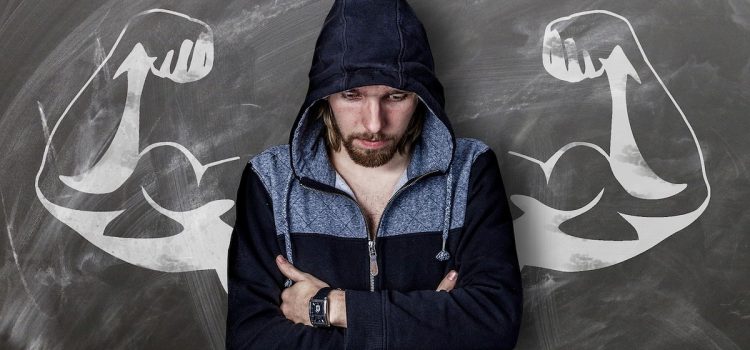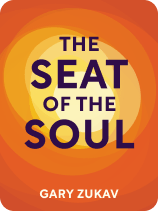

This article is an excerpt from the Shortform book guide to "The Seat of the Soul" by Gary Zukav. Shortform has the world's best summaries and analyses of books you should be reading.
Like this article? Sign up for a free trial here .
What’s the difference between external and internal power? What kind of power is authentic? How can you get it?
According to Gary Zukav, authentic power is internal power. In The Seat of the Soul, he explains that our spiritual souls are constrained by our material bodies. So, we tend to pursue external rather than internal power. Only the authentic, internal power can help our souls live out their purpose.
Let’s take a closer look at Zukav’s view of authentic power.
The Nature of the Material World
The biggest challenge our souls face in incarnating on Earth, according to Zukav, is that they are constrained by the choices we make with our rational minds, which think from a less enlightened perspective. If you are not consciously in touch with your soul and listening to its guidance, he says, you will make decisions based on the desires and fears of your lower self, your physical form. And yet those choices will affect your soul’s karma and therefore its chance for evolution. We’ll discuss the mistakes humans make when we don’t live attuned to the guidance of our souls. We’ll also see how, according to Gary Zukav, authentic power is what we need to reach the soul’s goal of enlightenment.
Mind Over Heart
Zukav explains that we humans dwell mostly within our lower, materialist selves, and have created a whole world based on this. We live a life of the mind instead of the heart, he says, so we don’t make proper choices about our behavior, we don’t hear our spirit guides, and we dismiss messages because we lack spirituality. Because of this, humans have created a world built on pursuit of external power instead of internal power, Zukav says.
The soul’s approach to the world is one of honoring all of life as sacred and refraining from harming any other life, but our lower selves don’t perceive the world this way. A perspective of honoring life is to see that everything has spirit and is equally divine. When we don’t honor life as divine, Zukav says, we judge some things and people as better than others, we create hierarchies, we exploit nature and other humans, and we accumulate resources, even to the detriment of others. In nature, animals don’t do this. Although some eat other animals, Zukav says that’s all a part of the cycle of life. They don’t take more than they need—the cycle of life is a balanced act of species offering up energy to others. If we revere and honor life and the natural world, he says, we’ll act within that same framework.
Zukav explains that living life according to this principle of honor may require challenging social norms because it’s not the way of mainstream society. As flawed humans, perceiving the world through our materialist lens, he says, we are all fragmented beings. Often we’ll feel conflicted about how to act because our material and spiritual aspects are in conflict with one another. For example, parts of us are peaceful and parts of us may be violent. So, according to Zukav, when we have to make a choice about how to act or react in life, we need to choose which one of those aspects of ourselves to indulge. A human who doesn’t even believe in, or is not in touch with his/her soul, he says, will often make the wrong choices, and thus we’ve created a world with much suffering and violence.
| The Quest for Power Zukav argues that finding our authentic internal power means tapping into the spiritual world outside of us, to which our souls are connected. By contrast, in his book Homo Deus, Yuval Noah Harari argues that moving away from religion and the belief in an all-powerful God has actually empowered humans to improve the world. When humans can’t rely on a deity to solve their problems, to heal illness, and to prevent suffering, he says, they must find the resources within them, to do those things for themselves. Harari explains that this is the basis for Humanism, the philosophy that humanity is essentially empowered by their own rational minds, to create meaning and purpose in life without need for a belief in the supernatural. Harari admits, though, that this humanistic drive toward empowerment through scientific advancement has led to the development of technologies that may ultimately destroy us, and the Earth. Zukav would connect this to the loss of reverence for life. Perhaps another non-supernatural approach to this problem could be Atheopaganism, a recently established non-theistic religious path that puts honor and reverence for the natural world at the center of its ideology. |
Ultimately, Zukav argues, the divide within us is always between fear and love. Fear is at the root of all other negative emotions, such as anger, jealousy, grief, and sorrow. While love is at the root of all positive emotions, such as joy, contentment, and gratitude. These emotions lead to corresponding behaviors, Zukav says—if we act from fear, according to our lower instincts, we behave in harmful ways such as lying, cheating, and manipulating. If we act from love, according to our heart, we will have peaceful, respectful behaviors toward others. Also, he says, we’ll continue to attract those same emotions and behaviors toward us, because of the law of attraction—energy attracts like energy. All of these choices will result in the kind of world we create on the material level, Zukav explains, as well as how our soul progresses in this lifetime.
(Shortform note: Episcopalian Bishop Robert O’Neill explores the idea of fear as the opposite of love through the narrative of the crucifixion of Jesus Christ. He says that when the story is analyzed, it becomes clear that the persecution of Christ was based in fear, and that fear, when spread to a large group, created a mob mentality that ultimately killed the savior, who represents love. In the end, however, he points out that the resurrection of Christ represents the ultimate triumph of love over fear.)
Pursuit of Power
Since we live a life of the mind, which chases material pursuits, Zukav says, we’ve come to understand life as a “survival of the fittest,” so we try to control and dominate our environment and others around us. He says that the feeling of powerlessness underlies all our fears, so we try to alleviate that by seeking power. However, he explains that we perceive power as external to us, something outside of us that we can have more or less of than others, and which determines our social position and thus our value. So we’re constantly in conflict, competing with one another, vying for power. This happens between individuals, races, countries, social classes, religious groups, and so on.
A materialistic person seeks external power, Zukav points out, by dominating and exploiting others, by wanting to be better than others, and by dominating nature. When we seek external power, he says, we’re acting from fear, and when we can’t attain it, or feel a lack of power, we feel anxiety. Anxiety, Zukav explains, is the fearful feeling of disempowerment. This manifests in the body, in the throat, or stomach, or chest, he says, and we can eventually create disease by not acknowledging it.
(Shortform note: There’s scientific evidence that Zukav is correct that anxiety can manifest physically in the body as disease. In his 2011 book When the Body Says No, Gabor Maté explores the connection between stress and disease, and cites copious research that has shown a link. And, specifically, according to Maté, one of the major stress-response triggers in the body is a feeling of lack of control, which would equate to the disempowerment Zukav refers to.)
However, Zukav reminds us that we all have an internal source of power—our souls. And we can tap into that by developing our sixth sense, our intuition. When we tune into our higher intuition, he says, we recognize that true power is within us, and there’s no longer any need to seek external power. Internal power is unlimited, and nobody has more or less. There’s no need to dominate, compete, or struggle for a power that’s within us. We see everyone as equal and act from love and compassion. Zukav calls this “authentic empowerment.” (Shortform note: Brené Brown warns in The Gifts of Imperfection that a major barrier to developing our intuition is our brain’s wariness due to an overwhelming need for certainty. She argues that the key to overcoming the need for certainty is embracing faith, or moving forward with trust despite not knowing what’s ahead.)
Seek Authentic Power
Once you’ve honed your intuition so that you can listen to your heart knowledge and be guided by your soul, Zukav says, you need to let go of any pursuit of external power and discover your internal power—the power of your soul. In this way you become authentically empowered to live out your soul’s purpose.
The spiritually powerful person realizes that materialistic power is unstable and can’t last, and therefore it isn’t truly power, Zukav says. Spiritual power comes from within, from one’s soul and that soul’s connection to the loving power of the universe.

———End of Preview———
Like what you just read? Read the rest of the world's best book summary and analysis of Gary Zukav's "The Seat of the Soul" at Shortform .
Here's what you'll find in our full The Seat of the Soul summary :
- An exploration into your soul’s purpose
- How to align your life with your soul's purpose
- How humans have become disconnected from their spiritual natures






